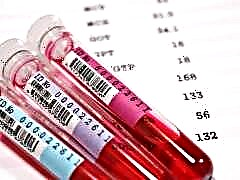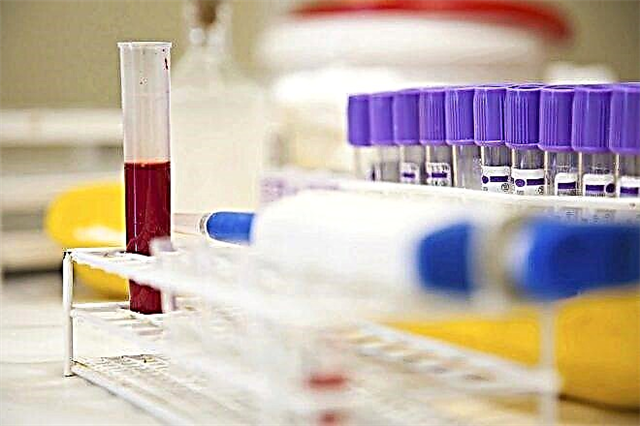
Determination of hormones in pregnant women is carried out several times during the entire period of bearing the baby. In the 2nd trimester of pregnancy, the determination of hormonal substances is mandatory. At this time, the risk of developing various pathologies increases significantly.
How does it work?
All nine months of pregnancy, the baby is actively growing and developing in the mother's tummy. For optimal growth and development of the child, it is very important that the concentration of hormonal substances in the mother is physiological. Any displacement leads to the fact that the developing baby will not form correctly.
In the most extreme case, he will show various anomalies and structural defects of his internal organs.
TSH is a baseline indicator. It plays an important role in many biological reactions in the body. The balance between thyrotropin and thyroid hormones is vital


It is especially important to control it in women living in iodine-deficient regions. Their risk of developing various diseases increases significantly.
Normal values
By the second period of bearing the baby, the hormone levels in the bloodstream begin to change. Usually, this situation manifests itself by the middle of this period. In the earliest weeks of pregnancy, this indicator does not change significantly in pregnant women. Some specialists prefer to use special tables in which normal indicators are entered.
You can take an analysis to determine thyroid-stimulating hormone both in a regular clinic and in a private laboratory. Serious preparation is not required for this. It is important that the delivery of the biochemical indicator occurs on an empty stomach. You can drink some water before testing.

Dinner before visiting the laboratory is best done as light as possible. You should not eat fatty and fried foods. They can lead to false results.
Doctors consider the normal values of this hormonal substance in the blood its concentration is from 0.4 to 4 mIU / ml.
Any deviations from the norm require additional diagnostics. If a woman has such violations, she needs to consult with an endocrinologist.


Decoding the results
If the analysis result deviates from the norm, a mandatory re-verification of the result is required. To do this, doctors recommend re-passing this laboratory test after 1-1.5 weeks.
The best way to do it is in another laboratory. If the value of this analysis also deviates from the norm, a mandatory consultation with an endocrinologist is required. A high level of thyrotropin in the blood provokes an increase in the concentration of thyroid hormonal substances. Doctors call this clinical condition hypothyroidism.
If this balance is significantly disturbed, then the pregnant woman develops adverse symptoms. Persistent hypothyroidism affects the fact that various pathologies begin to form in the developing baby.


A decrease in thyroid hormonal substances in the blood contributes to the fact that a pregnant woman's body weight increases. There is also severe swelling on the legs and face. The whole body becomes looser, pasty.
The emotional background of the expectant mother is changing. She becomes more depressed, whiny. Most women get very nervous. During the day, their sleepiness increases. At night, it is very difficult for the expectant mother to fall asleep.

In order to correct the formed disorders, the doctor will prescribe medications to the pregnant woman that normalize the hormonal balance. "Thyroxin" and "Eutirox" - frequently prescribed remedies for this condition. Such drugs are selected individually and prescribed only by an endocrinologist.
A reduced level of thyrotropin in the blood contributes to the fact that the content of thyroid hormones in the blood becomes elevated. This reverse clinical situation is called hyperthyroidism by specialists.
This pathology is no less dangerous. If it develops in a woman while carrying a baby, then very negative clinical manifestations begin to appear.


Women with hyperthyroidism become aggressive. They often break down on their loved ones, on their husband. Many expectant mothers with such pathologies experience strong mood swings.
To correct the violations that arise, doctors prescribe a whole range of therapy to pregnant women. This treatment is symptomatic. The selection of drugs is carried out very carefully, since the use of funds can lead to adverse consequences for the fetus
All pregnant women with various disorders in the concentration of these hormones should be monitored by an endocrinologist throughout pregnancy. For most, the pathologies that have arisen are completely normalized after the birth of the baby.

If the condition has not returned to normal, additional diagnostics and the appointment of complex treatment are already required.
For information on the TSH rates during pregnancy, see the next video.



